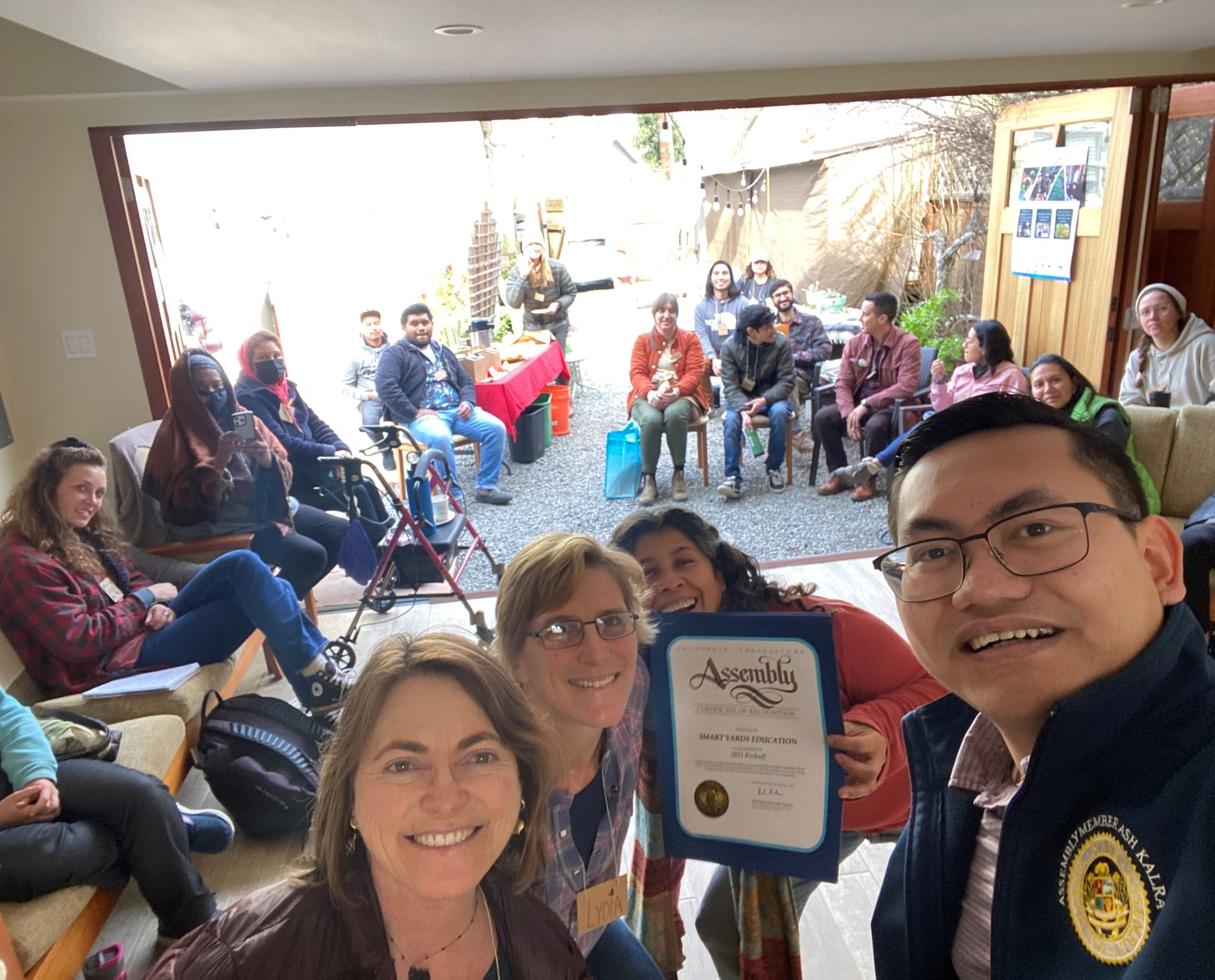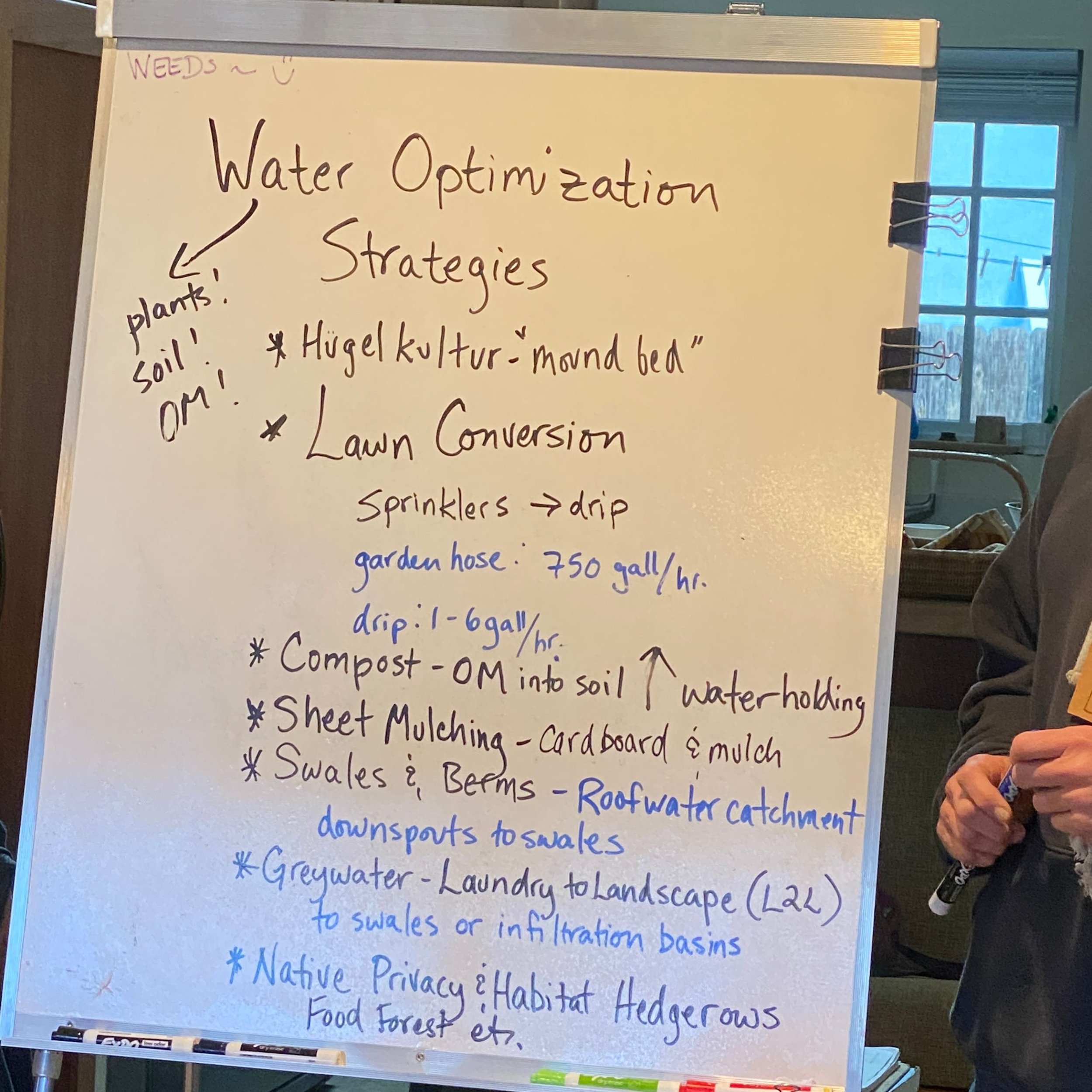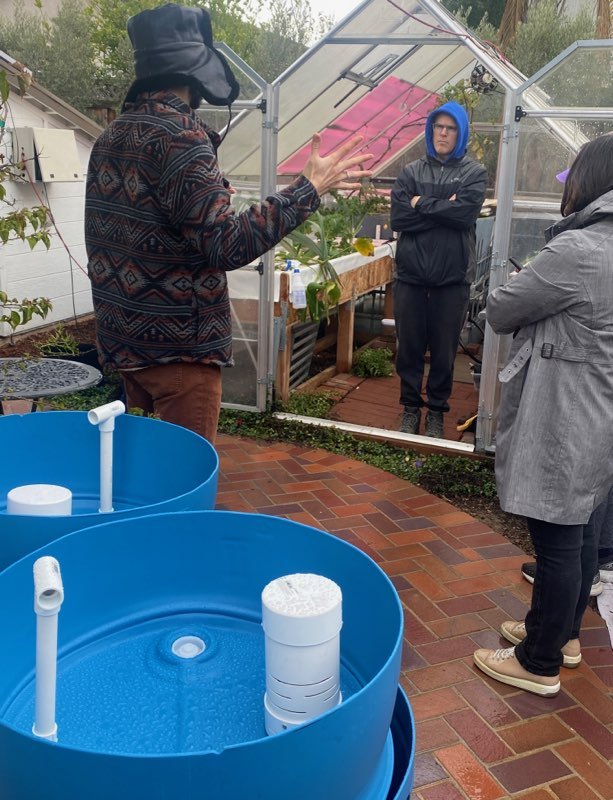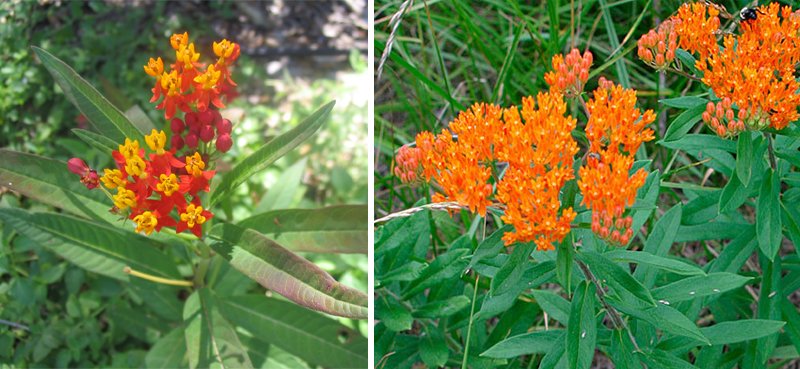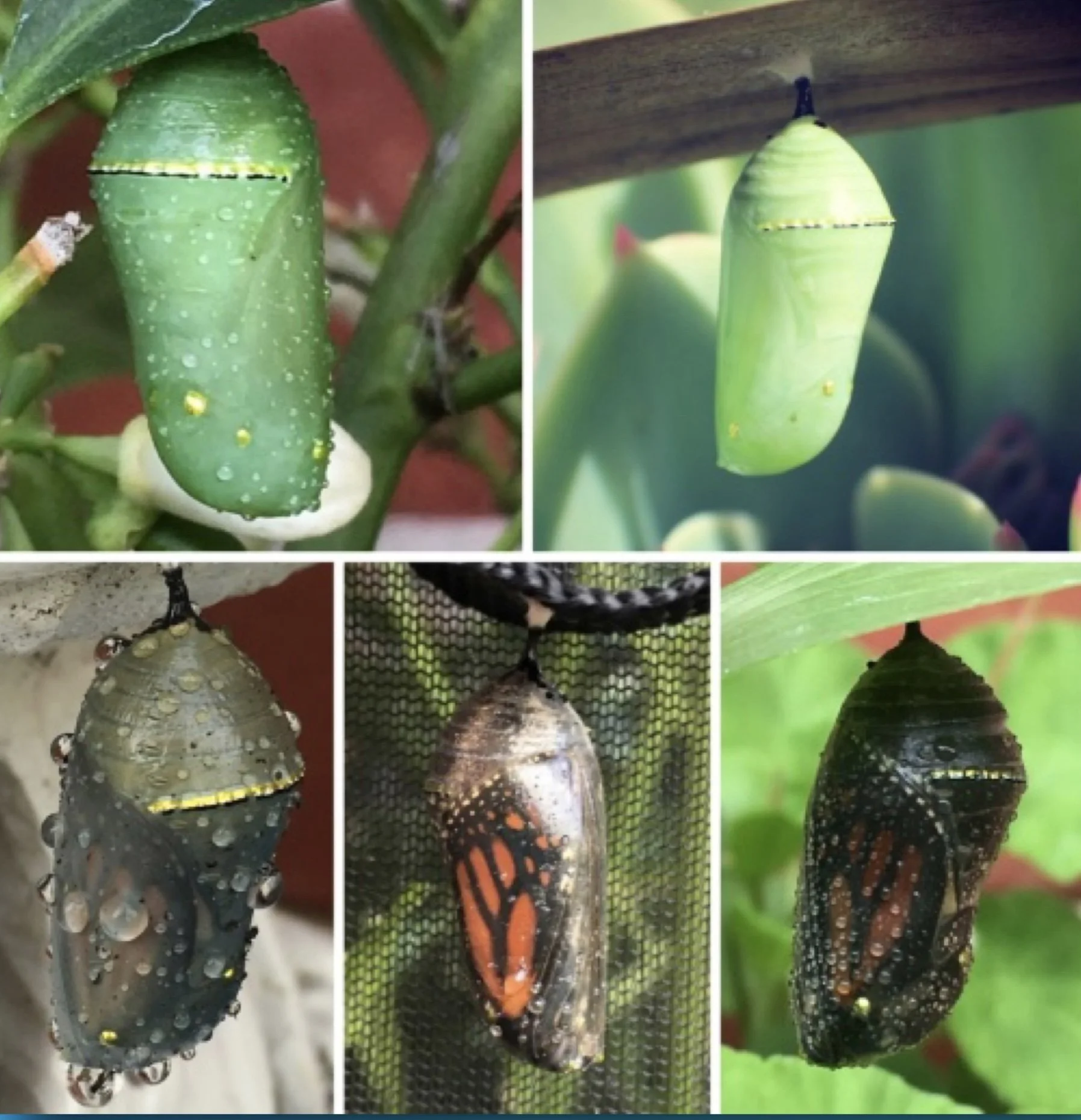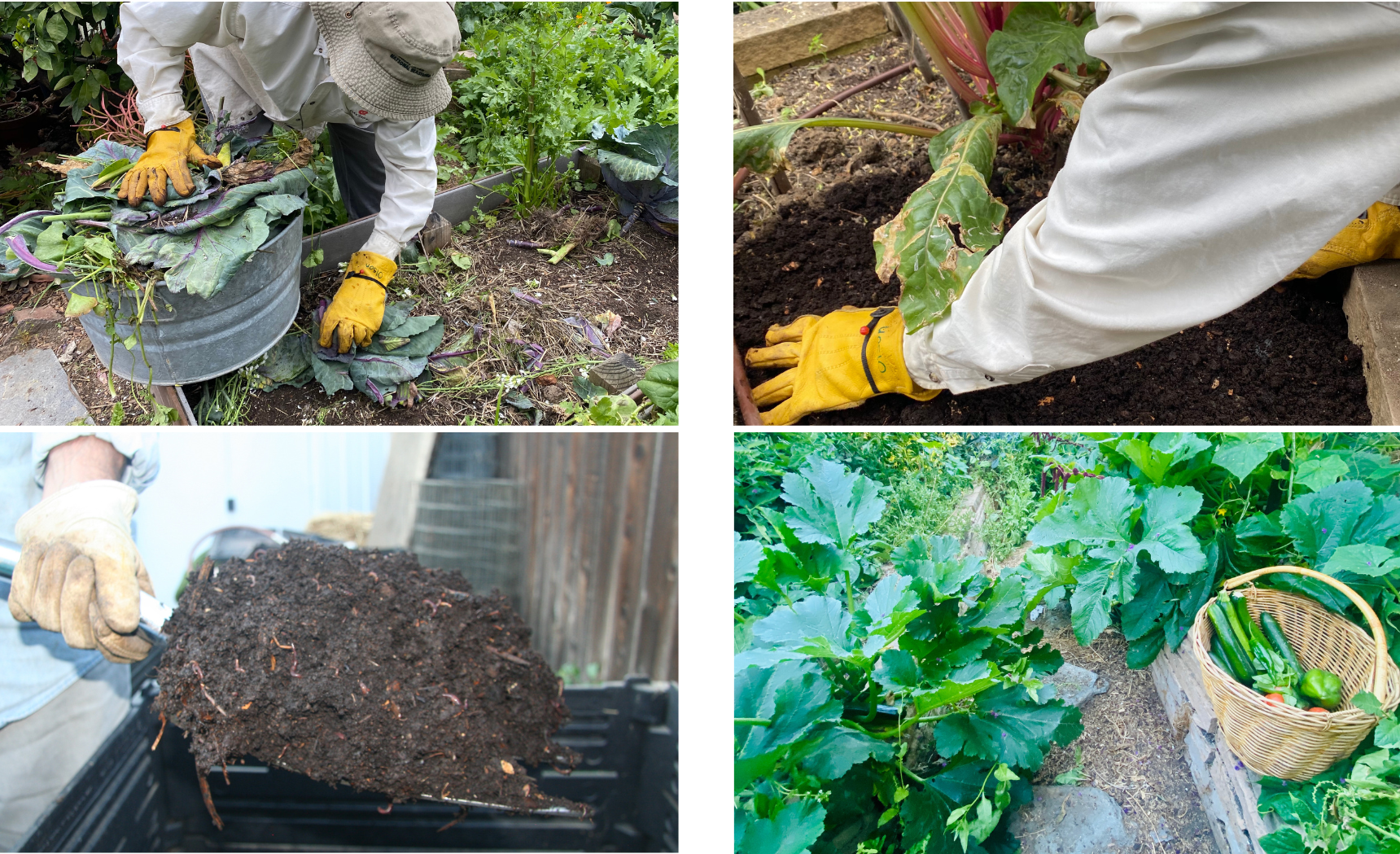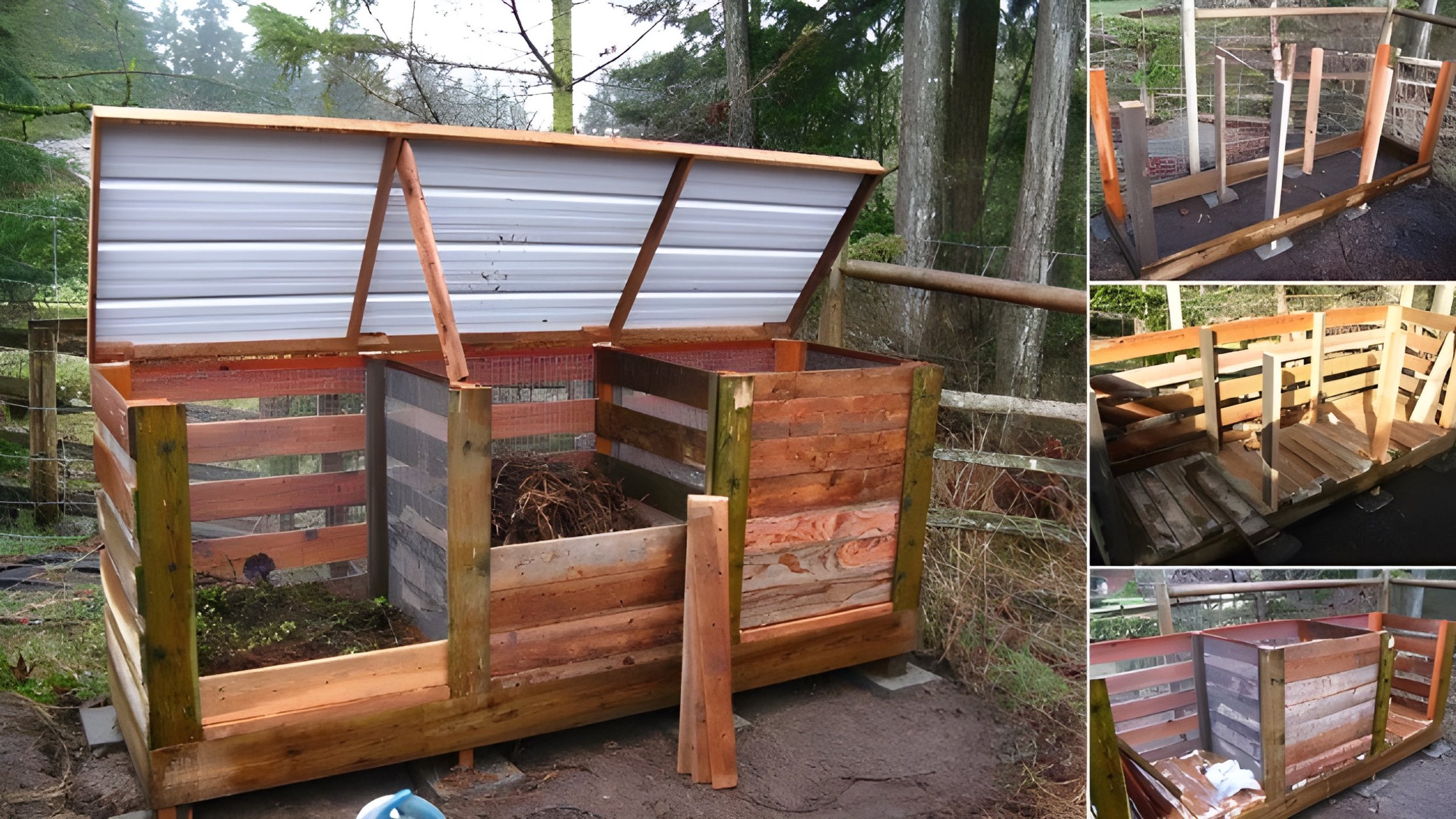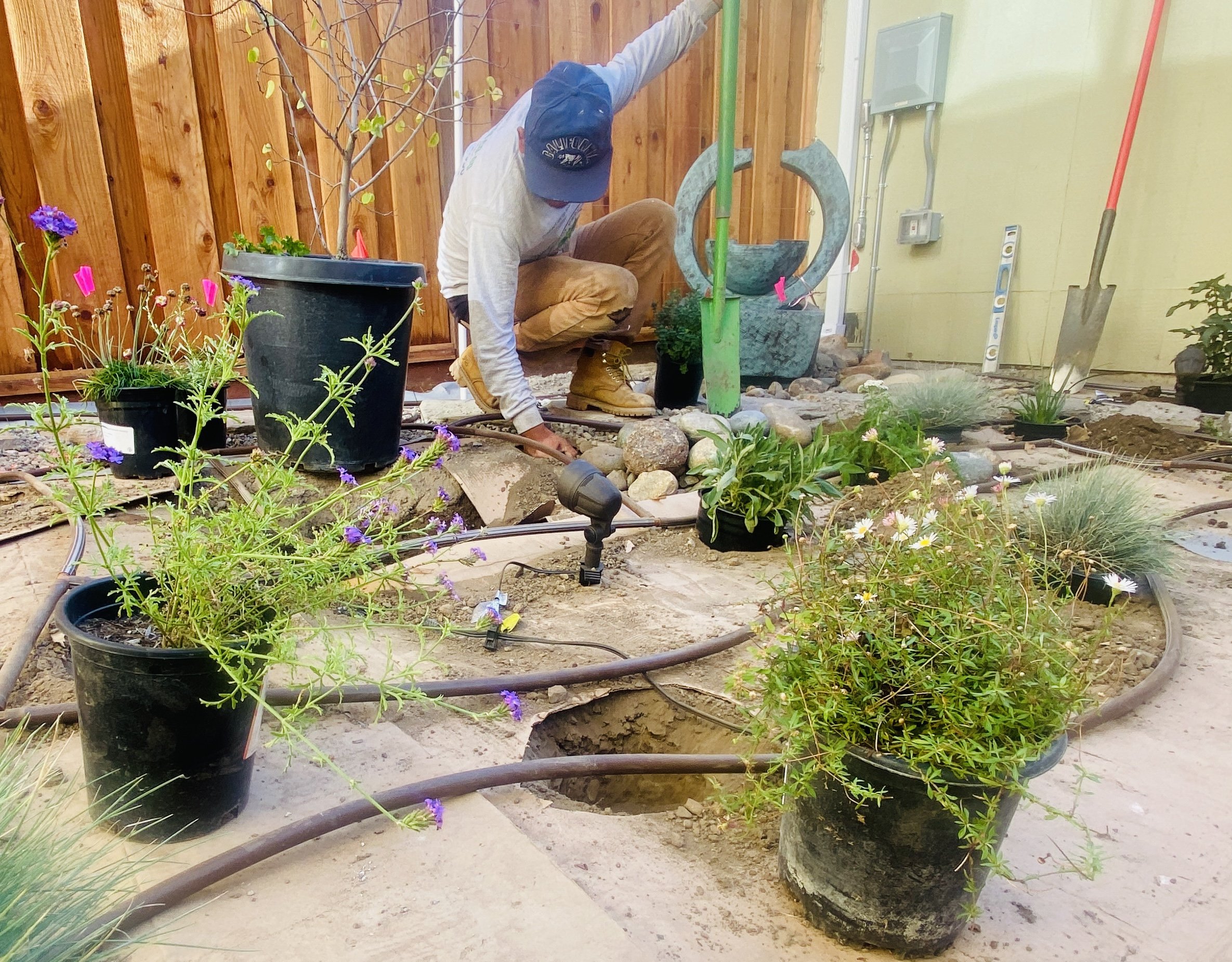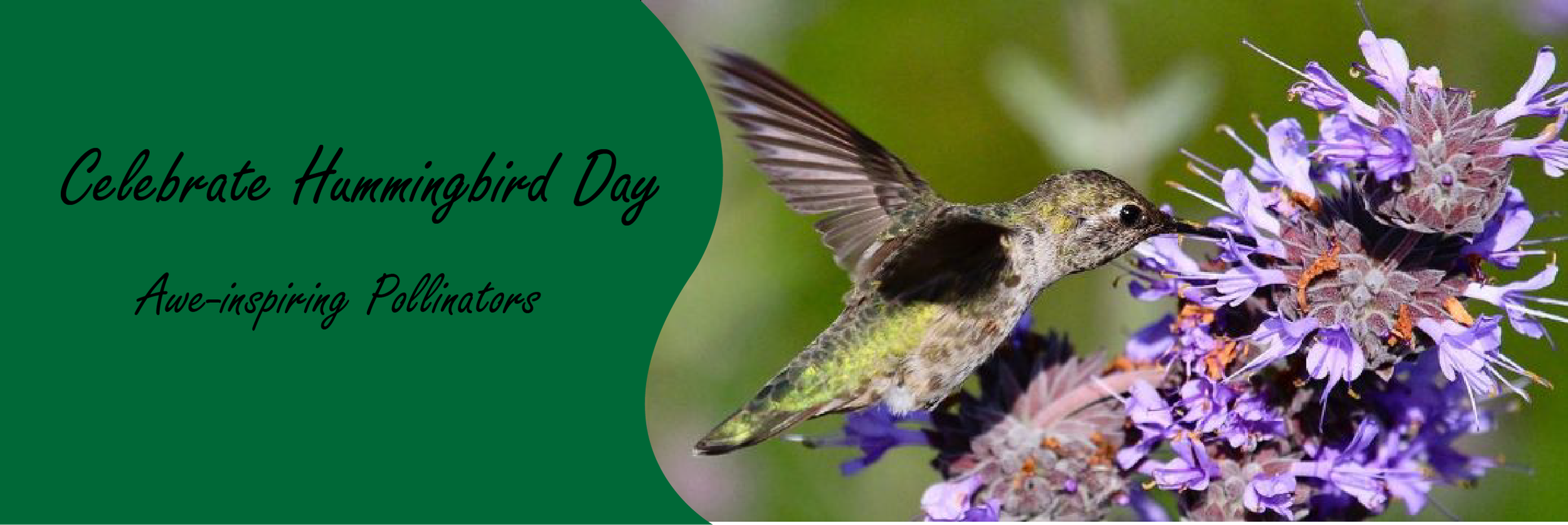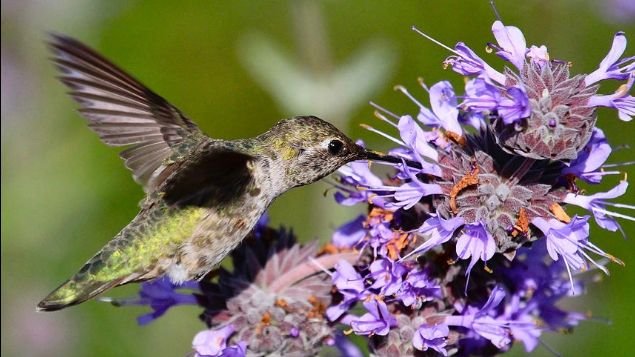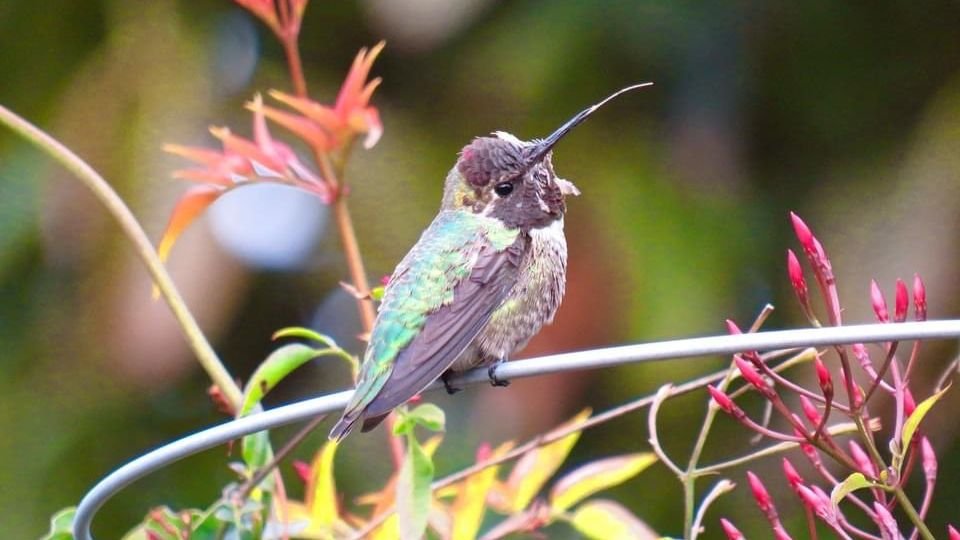
Smart Ideas
CELEBRATE EARTH MONTH 2024
Dear Earth Lovers,
As the green buds of April emerge, so does our reminder of the magnificent planet we call home. Earth Month is a time for reflection, celebration, and most importantly, action. This year, under the theme "Conserving Every Ecosystem, Caring for Every Creature," we are reminded of the interconnectedness of all living beings and the urgent need to protect our global ecosystem.
In alignment with our theme and our commitment to sustainable living, Smart Yards Co-op is thrilled to announce the San Jose Permaculture Program in partnership with Smart Yards Education. This innovative program is designed for bilingual, Spanish/English speaking individuals who are interested about cultivating sustainable and self-sufficient communities through the principles of Permaculture, regenerative and sustainable living. Whether you're a seasoned gardener or new to the concept of permaculture, this program offers a wealth of knowledge, practical skills, and a chance to contribute to a greener world. Registration is now open for those interested in becoming a student of permaculture. Secure your spot and embark on a journey towards sustainability and ecological stewardship. Click here to register and / or share with your network.
And that's not all! In the spirit of Earth Month and our dedication to spreading and inspiring many about sustainable living, we are excited to invite you to our Permaculture Abundance Open House. Join us on April 21, 2024 from 10 AM to 4 PM. Experience firsthand the power of permaculture principles demonstrated right in a back and front yard setting. This tour is an invitation to the public to see how integrating permaculture concepts can transform our living spaces into abundant, self-sustaining and life supporting ecosystems. Here are a few examples of the types of concepts you will see demonstrated:
Rainwater Harvesting: passive and active
Greywater Reclamation System (Laundry to Landscape)
Aquaponics Food Production
Food Forest and Fruit tree ‘espalier’
Pollinator and native habitat garden
Solar dehydrator
Raised vegetable beds
Don't miss this opportunity to connect with like-minded individuals, learn from experienced permaculture practitioners, and see the potential of permaculture in action. Please sign up today and we will email you location details!
Celebrate Western Monarchs
Dear Smart Yards Community,
February 5 is World Monarch Day and Smart Yards Co-op invites you to join us in celebrating the awe-inspiring journey of the Western monarch butterfly. In this edition of our newsletter, we delve into the fascinating world of monarch migration and want to also shed light on the critical role of milkweed, the required host plants for caterpillars of the monarch butterfly, particularly the debate surrounding tropical milkweed and its native counterparts.
The Milkweed Dilemma: Tropical vs. Native Varieties
Milkweed is not just a plant; it's a lifeline for monarch butterflies as well as many other pollinators. However, the introduction of tropical milkweed (Asclepias curassavica) has raised concerns among pollinator groups and scientists. Unlike most native milkweeds, tropical milkweed does not go dormant in the fall or winter, potentially disrupting the monarchs' natural migratory patterns.
Tropical milkweed (A. curassavica, left) can be difficult to distinguish from orange butterflyweed (A. tuberosa, right). Orange butterflyweed is also a low-growing milkweed with bright orange flowers that is native across much of North America. (Photo, Left: Justin Lebar / Wikimedia Creative Commons; Photo, Right: Joshua Mayer / Flickr Creative Commons)
The high concentration of cardenolides in tropical milkweed, while beneficial in combating a parasite called OE (Ophryocystis elektroscirrha), introduces a new set of challenges. Monarchs exposed to OE on tropical milkweed can become carriers, potentially spreading the disease to healthier butterflies during interactions. OE is spread by spores and can cause the adult monarch’s wings to become deformed. Additionally, the loss of Native milkweed plants in monarch’s spring and summer breeding areas across the United States is believed to be a significant factor contributing to the reduced number of monarchs recorded in overwintering sites in California and Mexico. Agricultural intensification, development of rural lands, and the use of mowing and herbicides have all reduced the abundance of milkweeds in the landscape.
A monarch butterfly infected with OE may not be able to eclose from its chrysalis, or may emerge with wings it cannot extend and flatten. (Photo: Dara Satterfield, Project Monarch Health)
Milkweed + More Plants for Monarchs
The foundations of any monarch butterfly garden undoubtedly rests on our native milkweeds (Asclepias spp.), as these are the only plants monarch caterpillars can eat. We at Smart Yards enjoy planting and nurturing these Milkweeds: Asclepias fascicularis (Narrowleaf milkweed) and Asclepias speciosa (Showy milkweed). Unlike their caterpillars, adult monarchs are generalist feeders, and they need varied nectar sources year round. Let us know if you’d like to get a Monarch Meadow that other pollinators and you will also enjoy.
At Smart Yards Co-op, we cherish Western Monarch Day for various reasons:
They are absolutely beautiful: Western monarchs, with their vibrant hues, are not just visually appealing but also crucial pollinators
Their mysterious migration deserves attention: The incredible journey of these butterflies prompts us to reflect on our impact on the environment and conservation efforts
A boost to conservation efforts: Recognizing this day raises awareness and support for conservation initiatives. It's a reminder of the urgency to protect these magnificent creatures.
As we continue to celebrate Western Monarch Day throughout the year let's continue our commitment to creating sustainable and monarch-friendly environments in our outdoor spaces. By choosing native milkweed and other native plants that support the Monarchs as well as native bees and other pollinators habitats, we can ensure a future where monarch butterflies continue to grace our landscapes.
“We delight in the beauty of the butterfly, but rarely admit the changes it has gone through to achieve that beauty.”
World Soil Day!
"Soils: Where food begins"
The Smart Yards Coop team, wish you a Happy World Soil Day. Observed annually, on December 5th, World Soil Day aims to raise awareness about its importance for life sustaining in our planet. In this issue, we want to share some facts about soil, challenges, opportunities and how together we're making a difference to build and conserve our precious soil.
Soil provides the essential nutrients for plant growth, animal life and millions of microorganisms. However, if soil becomes unhealthy, unstable or polluted, the life cycle stops. Our work of converting lawns for the conservation of water goes hand to hand with the health and conservation of our soil. We keep soils healthy through a combination of practices and techniques to ensure that soil is fertile, productive, and is protected from erosion and deterioration. All resulting in water retention, healthy and productive plants and rich ecosystem beaming with life.
Soil plays a crucial role in storing carbon, curbing climate change and it is a vital contributor to human health. A recent research shows that a thin layer of compost applied to grasslands could help fight climate change by capturing carbon from the atmosphere and storing it in the soil. Soil's wealth of biodiversity also plays a key role in regulating, storing and filtering water. At Smart Yards Co-op we start our work from the ground up, ensuring soil conservation, and building healthy soil in every project through our methods of sheet mulching, organic compost application, composting system installations, building hugelkultur systems, as well as working with CA native grasses that prevent erosion and other techniques.
Soil Conservation Practices
Feed the soil with compost to encourage microbial activity and plant growth. Compost also improves the water-holding capacity of soil, making it more resilient to drought and flooding
Maximize continuous living roots by establishing woody perennial plants. If you grow annual vegetables, plant cover crops after harvesting and alongside the crops. Plant roots exude carbohydrates that feed soil microbes
Keeping un-planted areas covered with a thick layer of mulch such as wood chips, straw, tree leaves or compost is important. Mulch helps soil retain moisture, encourages microbial activity and prevents erosion. Ground cover plants and low cover crops also act as "living mulches" and are an excellent mulching solution.
Minimize disturbance; erosion, compaction and rototiller can harm soil microbes and release carbon to the atmosphere. Instead of tilling, try sheet mulching when preparing your garden beds
Avoid synthetic fertilizers, pesticides and herbicides which harm the microorganisms that play an important part in storing carbon in the soil. Also, applications of synthetic nitrogen fertilizer can cause nitrous oxide emissions, a greenhouse gas that traps 300 times more heat than carbon dioxide
Maximize biodiversity; the more diverse the above ground plant community is the more diverse the below ground soil food web will be. A thriving soil food web is excellent habitat for beneficial microbes and also helps prevent pests and pathogens from harming plants.
Fertile soil is teeming with beneficial soil microbes. It is estimated that there could be billions of microbes in a gram of soil. Bacteria, fungi, and protozoa are major players in soil microbial processes. They perform a variety of functions beneficial to soil and the plants growing in that soil. Other soil organisms of importance are nematodes, arthropods, and earthworms
Feel free to share this information with your family and friends. Contact us and step forward to transform you outdoor space into a healthy, rich and earth friendly living ecosystem for all to enjoy.
“Land is not merely soil, it is a fountain of energy flowing through a circuit of soils, plants and animals.”
Embrace the Benefits of Fall Planting
As the vibrant colors of summer transition into the warm and earthy hues of autumn, it's the perfect time to contemplate your garden's next transformation. Fall, often overlooked as a planting season, actually offers some distinct advantages for gardeners, especially when it comes to native plants. In this edition, we'll explore why fall is the best season to add native flora to your garden and how Smart Yards Co-op can assist you in creating a thriving, sustainable garden.
The Fall Planting Advantage
Optimal Conditions: The cooler temperatures and increased rainfall of fall provide an ideal environment for young plants. The soil is still warm from the summer, promoting root growth before winter's chill sets in.
Reduced Stress on Plants: Planting in fall gives your new additions a head start, allowing them to establish their roots without the stress of scorching summer heat. This makes them more resilient to the challenges of the following year.
Less Watering: The increased rainfall in many regions during the fall months means you'll spend less time watering your garden. It's a more efficient use of resources and a smart choice for water conservation.
Native Plants Thrive: Native plants are well adapted to local conditions, making them a smart choice for fall planting. They support local wildlife, require less maintenance, and are often drought tolerant.
How Smart Yards Co-op Can Help
Smart Yards Co-op is your partner in creating a garden that's not only beautiful but also ecologically responsible. Here are a few ways we can assist you:
Native Plant Selection: Our team can help you choose the right native plants for your specific location and preferences. We offer a wide range of native species to enhance your garden's biodiversity.
Garden Design: If you're starting from scratch or looking to design your garden, we provide design services to create a garden that's both aesthetically pleasing and ecologically beneficial.
Installation Services: Let us do the heavy lifting. Our experts can install your native plants, ensuring they're placed in the optimal location for growth and visual appeal.
Garden Care: We take care of your garden, keeping it healthy and thriving year-round while minimizing your environmental footprint.
Ready to take the plunge into fall gardening with native plants? Smart Yards Co-op is here to guide you every step of the way. Contact us today for a consultation and let us help you create a garden that's both stunning and eco-friendly.
Little Animals, Big Impact: Celebrating Bat Appreciation Week
Dear Smart Yards Community,
We're thrilled to join in the celebration of Bat Appreciation Week. These incredible creatures play a pivotal role in our ecosystem, and at Smart Yards Co-op, we're dedicated to raising awareness and taking action to protect them.
Why Bats Matter
Bats are more than just mysterious nocturnal creatures. They're essential for the health of our planet, and here are three significant ecological functions they provide:
Pollination: Much like hummingbirds, bees, and butterflies, bats serve as vital pollinators. They play a crucial role in the reproduction of various plant species, helping to maintain our rich biodiversity. Bats especially love plants that flower at night, such as goldenrod, yarrow, native salvia, yucca, sunflower, figs, dates, mangoes, and peaches.
Seed Dispersal: Bats are nature's gardeners. As they travel long distances and disperse seeds through their droppings during flight, they contribute to the growth of new plants and trees. In fact, up to 95% of new growth in some areas is thanks to seeds dropped by bats.
Pest Control: Bats are natural pest controllers. By consuming up to 1,200 mosquitoes per hour, they help keep pest populations in check. Recent studies estimate that bats save more than $3.7 billion per year in crop damage and pesticide costs, making them indispensable to agriculture.
The Urgent Need for Bat Conservation
Despite their invaluable contributions, 23 species of bats are currently listed as critically endangered. They face immediate risk of extinction due to factors such as deforestation, climate change, and disease. This is why, at Smart Yards Co-op, we are deeply committed to our mission of creating a sustainable environment for these remarkable creatures.
Our Commitment to Bat-Friendly Landscaping
At Smart Yards Co-op, we are more than just an ecological landscaping company; we are stewards of the natural world. We design and maintain gardens that provide homes and safe havens for bats, enabling them to rest and thrive while enriching our green spaces.
By choosing our professional garden services, you contribute to the creation of an ecosystem where we not only take care of flora but also support our valuable fauna. Let us join forces to ensure a brighter, greener future for all. Together, we can make a difference!
Join us in celebrating Bat Appreciation Week and the amazing impact of these little animals. Contact us today to learn how we can transform your yard into a bio-diverse haven while enjoying a beautiful, sustainable garden.
Thank you for being a part of the Smart Yards Co-op community. Together, we can make our yards smarter, our planet greener, and our world better.
Celebrate World Habitat Day
World Habitat Day is a day to reflect on the state of our towns and cities. It's a moment to consider the fundamental right to adequate shelter and to celebrate the achievements and challenges of urban development. At Smart Yards Co-op, we believe that the beauty of our surroundings should be intertwined with ecological sustainability. Schedule a consultation and learn how we can help you build a natural habitat landscape in your backyard.
As World Habitat Day approaches on October 2, we're excited to dive into the significance of this day and explore the ways we can contribute to creating thriving urban ecosystems. Discover how we can make a positive impact on our cities while providing homes for pollinators, native landscapes, and fauna!
Pollinator Habitats
Pollinators like bees, hummingbirds and butterflies are essential for food production. Yet, rapid urbanization can threaten their habitats. By incorporating pollinator-friendly plants and nesting sites, we can create spaces that support these vital creatures. Consider planting native flowers like Lavender and Coneflowers in your yard. Not sure where to start? Reach out to us for personalized guidance on creating a pollinator-friendly garden in your own backyard.
Native Landscapes
Cultivating an ecologically appropriate garden is the key to inviting the diversity and splendor of your region. Ready to embrace the beauty and benefits of native plants? Reach out to us to discuss how native landscaping can transform your yard into a thriving and low-maintenance ecosystem.
Fauna Habitats and Natural Stonework
At Smart Yards Co-op, we're proud to offer a range of services that contribute to thriving urban ecosystems. One of our specialties is natural stonework. The spaces between laid stones provide a fantastic habitat for insects and local fauna, enriching the soil and creating a harmonious micro-environment.
As we approach World Habitat Day, let's remember that our cities are more than just structures—they're interconnected ecosystems where humans and nature thrive together. At Smart Yards Co-op, we're committed to helping you transform your outdoor space into a sanctuary for biodiversity.
Celebrate Hummingbird Day With Smart Yards Co-op!
Happy Hummingbird Day from us at Smart Yards Co-op! As the vibrant hues of summer paint the world with its brilliance, we invite you to celebrate and observe this tiny yet awe-inspiring, beloved creature in your Smart Yards Gardens . Did you know that hummingbirds are the only birds that can fly backwards and have the highest heart rate (up to 1,260 beats per minute)! September 2 is a day dedicated to honoring these remarkable birds and shedding light on their significant role as pollinators in our native landscapes.
A Symphony of Blossoms: Hummingbird-attracting plants we’d love to add to your garden:
Hummingbirds have a penchant for certain types of flowers, drawn to vibrant, tubular blooms bursting with nectar. These flowers have evolved to meet the needs of these agile pollinators, providing them with the sustenance they require. If you're interested in attracting these delightful visitors to your garden, consider planting some of their favorite flora or let the team Smart Yards help you.
Hummingbird Sage (Salvia spathacea): Native to California, this plant boasts stunning magenta-colored blossoms that hummingbirds find irresistible. It's a true gem in any garden, providing both beauty and sustenance.
Balm (Monarda spp.): A favorite among hummingbirds, the vibrant clusters of Bee Balm flowers not only attract these birds but also add a splash of color to your outdoor space.
Fuchsia (Fuchsia spp.): The pendulous, delicate flowers of the fuchsia plant are a hummingbird's delight. Their elegant form and nectar-rich rewards make them a must-have in any hummingbird-friendly garden.
Columbine (Aquilegia spp.): This perennial beauty offers a unique shape that appeals to hummingbirds. Its spurred flowers come in various colors, creating a picturesque scene in gardens.
Join the Celebration: Hummingbird Day
Hummingbird Day is not only an occasion to marvel at the beauty of these feathered wonders but also an opportunity to learn about the importance of preserving their habitats. As urbanization and habitat loss continue to threaten the delicate ecosystems these birds rely on, it's our responsibility to take action. Consider creating a hummingbird-friendly space in your garden, using native plants and avoiding harmful pesticides.
Smart Yards Co-op: Your Partner in Creating Hummingbird-Friendly Spaces
At Smart Yards Co-Op, we understand the significance of nurturing our natural surroundings and creating spaces that support local wildlife. If you're inspired to design a garden that beckons hummingbirds and other pollinators, we're here to help. We specialize in crafting landscapes that harmoniously blend beauty and ecological balance. Whether you're a homeowner, a business owner, or a community organization, we're eager to collaborate with you to bring your vision to life. This Hummingbird Day, let's celebrate the brilliance of these mighty creatures and reiterate our commitment to safeguarding their habitats. Once you're ready to embark on a journey of creating a hummingbird haven in your own backyard, reach out to Smart Yards Co-op today and let's make your hummingbird dreams take flight! Remember, every flutter of their wings carries the promise of a more vibrant and flourishing planet. 🦜




